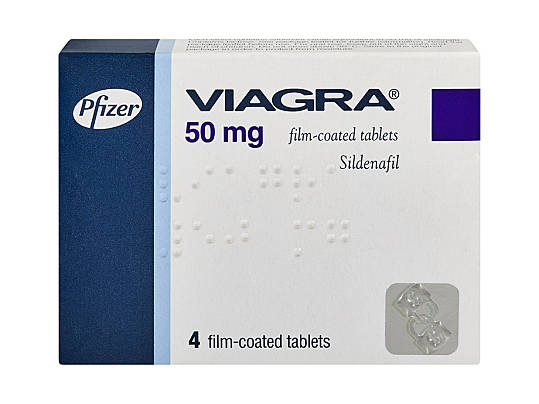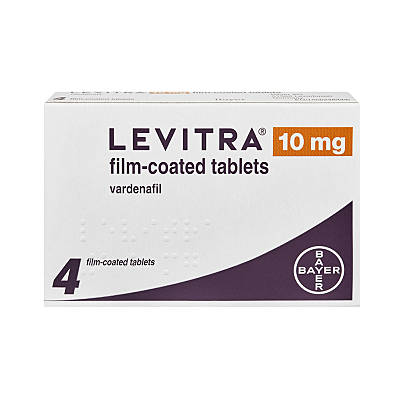Side effects of Viagra and how to reduce them

Medically reviewed by
Dr Zoe MillerLast reviewed: 20 Nov 2024
Viagra is used in the treatment of erectile dysfunction to help you get and maintain an erection during sex. While Viagra is an effective treatment, there are some potential side effects that you may get when you take it.
Viagra contains the active ingredient sildenafil citrate. Sildenafil is a phosphodiesterase type-5 (PDE5) inhibitor and works by increasing the blood flow to your penis. As Viagra works on blood vessels it can affect other parts of your body and cause side effects.
The majority of these side effects will go away within a few minutes to a few hours after taking Viagra. You can also follow a few simple steps to make sure you reduce your chance of getting side effects.

No results found.
Please check your spelling or try another treatment name.
What are the side effects of Viagra?
Viagra has several possible side effects. Some are more common than others, which means you’re more likely to experience these side effects. If you do experience any common side effects, these will pass within a few hours and are generally not harmful but can be uncomfortable. Side effects are also less likely when taking Viagra (sildenafil) for erectile dysfunction, as you're only taking it when needed.
Remember that the list of side effects does not tell you how strongly you might feel these symptoms. Everyone experiences side effects differently – for example, you may feel only slightly dizzy after taking Viagra, whereas someone else might feel that they cannot stand up properly.
Common side effects of Viagra
Common side effects of Viagra can affect up to 1 in 10 people, and they include:
- headache
- feeling dizzy
- feeling sick (nausea)
- indigestion
- blurred vision
- colour tinge to vision
- visual disturbance
- hot flush (suddenly feeling hot, especially in your face or the top half of your body)
- a stuffy nose
Uncommon side effects of Viagra
Uncommon side effects of Viagra are less likely to happen to you as they can affect up to 1 in 100 people. These uncommon side effects include:
- being sick (vomiting)
- skin rash
- eye irritation, pain or red/bloodshot eyes
- seeing flashes of light
- visual brightness
- light sensitivity
- watery eyes
- pounding or rapid heartbeat
- chest pain
- high or low blood pressure
- muscle pain
- feeling sleepy
- reduced sense of touch
- vertigo (a sensation of moving or spinning)
- ringing in the ears
- dry mouth
- blocked or stuffy sinuses
- inflammation in the nose lining that can cause a runny or stuffy nose and sneezing
- upper stomach pain
- gastro-oesophagal reflux disease (GORD)
- blood in urine
- pain in the arms or legs
- nosebleed
- feeling hot and tired
- an allergic reaction
Allergic reactions can range from mild to severe. Mild symptoms that can usually manage by taking an antihistamine include:
- rash
- itching
- congestion
If you find yourself experiencing the more severe symptoms listed below, you should call 999 or visit A&E straight away:
- difficulty breathing
- swelling of face
- swelling of throat
If you have any kind of allergic reaction, you must let your doctor know and stop taking the medication immediately.
Rare side effects of Viagra
Rare side effects of Viagra will only affect up to 1 in 1,000 people. This means for every 1,000 people who take Viagra, only 1 or 2 will experience these rare side effects, so it’s unlikely.
Rare side effects of Viagra can be more serious. If you experience any rare side effects, contact your doctor or hospital emergency department immediately.
They include:
- fainting
- stroke
- heart attack
- irregular heartbeat
- temporary decreased blood flow to parts of the brain
- feeling of tightness in the throat
- numb mouth
- bleeding at the back of the eye
- double vision
- reduced sharpness of vision
- abnormal sensation in the eye
- swelling in the eye or eyelid
- small particles or spots in the vision
- seeing halos around lights
- dilation of the pupil of the eye
- discolouration to the white of your eye
- penile bleeding
- presence of blood in the semen
- swelling in the nose
- feeling irritable
- a sudden decrease or loss of hearing
You can find more information about these side effects in the Viagra patient information leaflet.
How long do the side effects of Viagra typically last?
How long Viagra side effects typically last depends on the specific side effect you experience. You might be wondering how to get rid of the side effects of Viagra, and most of the time you have to wait for the medicine to be broken down by your body.
Once you have taken a Viagra tablet, the active ingredient sildenafil is absorbed into your bloodstream within 30 minutes to 1 hour. This means taking it around an hour before sex gives it enough time to work.
Sildenafil remains effective in your body for around 4 hours. After 3 to 5 hours, your body will have gotten rid of half of the medication. This means if you experience any side effects after taking Viagra, it can take between 3 and 5 hours before you feel better, or in some cases longer.
If you have any side effects after taking Viagra that do not disappear or improve after 4 hours, speak to your doctor. Do not take more than 1 Viagra tablet within 24 hours or take more than your prescribed dose.
Are there any long term side effects of taking Viagra?
The side effects of Viagra are not usually long term, as they normally improve after a few hours. Some serious side effects can cause long term problems if you do not get them treated immediately. These include:
- prolonged erection or a painful erection that lasts more than 4 hours with or without sexual activity (also known as priapism)
- a serious allergic reaction (difficulty breathing, swelling of the face or throat)
- chest pain
- serious skin reactions, such as peeling or blistering of the skin
- seizures
- a sudden loss of vision that may cause damage to the optic nerve
If you experience chest pain after taking Viagra, do not use nitrates to treat the chest pain (like GTN or nitroglycerin spray). Using nitrates with Viagra can cause a sudden decrease in your blood pressure. Instead, you should call 999 immediately.
Remember that the above side effects are uncommon or rare, so you are not likely to experience them. They may only be likely if you take Viagra more often than you should, or if you have other medical conditions, especially ones affecting your heart or eyes. This is why it's important that a doctor checks your medical and family history before prescribing Viagra, and that you only take it if it’s been prescribed to you.
If left untreated, these side effects can cause long-term damage to your health. It’s better to get your symptoms checked out than to leave them alone or wait for an improvement. If you are at all concerned about a serious side effect you’re experiencing, call 999 or go to A&E straight away.
How to reduce the side effects of Viagra
You can reduce the side effects of Viagra by following a few simple steps. Remember that it’s not always possible to avoid all side effects as you may be more sensitive to Viagra than other people.
Take Viagra as directed
You should take Viagra as you have been directed by your doctor. The normal dose of Viagra is to take one 50mg tablet around an hour before you have sex. You might take more or less than this depending on your circumstances, but only take the dose you’ve been prescribed.
Viagra needs sexual stimulation to work properly and help you get an erection, so you have to be aroused for it to work.
Avoid taking a double dose if Viagra has not worked for you, and do not take another dose within 24 hours. If Viagra is not working, you may need an alternative treatment.
Tell your doctor about any medication you are taking
Tell your doctor or pharmacist if you are taking any regular medication, over-the-counter medicines or supplements. This is because some drugs can interact with Viagra and cause stronger side effects.
These include:
- alpha-blockers, like doxazosin to treat high blood pressure (hypertension)
- treatment for HIV, like ritonavir
- riociguat
- nitrates, including amyl nitrate (also known as poppers)
This isn’t an exhaustive list and some other medications may interact with Viagra. You can find the most up-to-date information about Viagra and other medication in the patient information leaflet.
Change your dosage
If side effects persist even after you have followed the advice of your doctor or pharmacist, you may need to change how much Viagra you take. Your doctor can advise you on a dose change.
Viagra is available as 25mg tablets, 50mg tablets and 100mg tablets. Your doctor will usually prescribe 50mg Viagra tablets as a starting dose. If you experience side effects with 50mg tablets, speak to your doctor to find out if 25mg tablets might be a better option for you.
A lower strength of Viagra may be more suitable for you if you have certain medical conditions, such as liver or kidney disease or if you are taking certain medications. You can request sildenafil 25mg tablets from Asda Online Doctor.
Avoid grapefruits and grapefruit juice
When you take Viagra, avoid eating grapefruits and drinking grapefruit juice. There is a chemical inside grapefruits that can affect how sildenafil breaks down in your body.
Your liver contains enzymes that break down drugs to make sure the medication does not stay in your body for a long time. One of these enzymes is called CYP3A4. A chemical in grapefruit blocks this enzyme which can change how long sildenafil stays in your body.
This means the effects of sildenafil in your body are not predictable after you’ve had a grapefruit or grapefruit juice. You may experience stronger side effects or find it difficult to get an erection. Grapefruit can also affect some blood pressure medications, such as felodipine.
If you’re keen on having a healthy fruit juice, try a glass of fresh orange or apple juice instead as these are safe to drink with Viagra.
Do not drink too much alcohol
Although alcohol can help with nerves and sexual performance anxiety, too much can interfere with sexual performance. Alcohol can also cause problems like erectile dysfunction and premature ejaculation.
Taking Viagra after drinking alcohol makes it more likely for you to experience headaches and flushing. If these particular side effects are an issue for you, try to limit alcohol before using Viagra.
As a general guide, try to drink less than 14 units of alcohol per week.
Stay hydrated
Staying hydrated is a simple way to reduce the side effects of Viagra. You can keep hydrated by drinking plenty of water throughout the day. Aim to drink 6 to 8 glasses of water or more if it’s a hot day or if you sweat a lot due to being active.
If you are dehydrated, you might start to feel dizzy or tired, which can be confused with the side effects of Viagra. Being dehydrated can also affect your erection, as water makes up a large part of your blood. If you do not have a good volume of blood you may not be able to maintain an erection, even if Viagra works to increase blood flow to your penis.
Alternatives to Viagra
You may find other alternatives to Viagra that are more suitable for you and have fewer side effects. These include other PDE5 inhibitors such as:
You can also consider Vitaros cream as an alternative treatment for erectile dysfunction.

No results found.
Please check your spelling or try another treatment name.

After completing her first degree, she went on to study graduate-entry medicine at Warwick University. After graduating as a doctor, she worked within the West Midlands in Urology, Respiratory Medicine, Infectious Disease, and Psychiatry before transitioning into a full-time medical communications role.
Meet our doctorsArticle created: 08 Dec 2021
Last reviewed: 20 Nov 2024
-
Viagra 25mg film-coated tablets, Patient Information Leaflet, EMC[accessed December 2021]
-
Viagra 25mg film-coated tablets, Summary of Product Characteristics, EMC [accessed December 2021]
-
Grapefruit and medication: A cautionary note [March 2021] [accessed December 2021]
-
Influence of Alcohol on Phosphodiesterase 5 inhibitors Use in Middle- to Old-Aged Men [accessed December 2021]
-
Viagra 50mg film-coated tablets, Patient Information Leaflet, EMC [accessed December 2021]




(Reviews are for ZAVA UK)


GMC: 7074021

GMC: 6149061

GMC: 7085115













